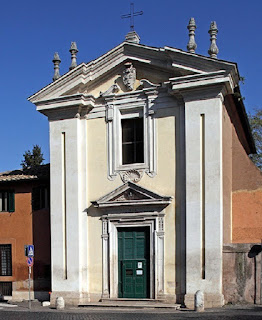Yesterday, the Dicastery for the Doctrine of the Faith issued an ex Audientia Declaration, Fiducia Supplicans (« On the Pastoral Meaning of Blessings »). The document derives its title from its opening sentence: « The supplicating trust of the faithful People of God receives the gift of blessing that flows from the heart of Christ through his Church » [1]. While the Declaration does address the meaning of blessings more generally, the clear context for this relatively short document is to deal directly with the controversial contemporary question about the possibility of Blessings for couples in irregular situations and same-sex couples.
Thus the Dicastery repeats its established position that « rites and prayers that could create confusion between what constitutes marriage – which is the ‘exclusive, stable, and indissoluble union between a man and a woman, naturally open to the generation of children’ – and what contradicts it are inadmissible » [4]. This point is repeated, in various ways, throughout the document. The result is that, whatever is being proposed here it is not the sort of public ritual validation of certain particular types of union that some may have been advocating.
So what exactly is being proposed? The document briefly outlines its theology of blessings as sacramentals, which « lead us to grasp God’s presence in all the events of life and remind us that, even in the use of created things, human bings are invited to seek God, to lion him, and to serve him faithfully » [8]. The document definitely seems to want to distinguish the blessings which are its focus from formal liturgical blessings – for fear « that a pastoral gesture which is so beloved and widespread will b subjected to too many moral prerequisites, which, under the claim of control, could overshadow the unconditional power of God’s love that forms the basis of the gesture of blessing » [12].
The Declaration appears to want to treat blessings largely as « pious practices, » separate and distinct from liturgical rites and forms. « In this way, blessings become a pastoral resource to be valued rather than a risk or a problem » [23]. The imagery that seems to underlie this analysis is the kind of impromptu blessings people routinely ask for when celebrating an occasion or facing a crisis or embarking on a journey, etc., experiences most priests must immediately recognize as familiar. Indeed, the Declaration specifically calls for « the pastoral sensibility off ordained ministers » to « be formed to perform blessings spontaneously, » apart from any official rites and forms [35].
Indeed, the document deems it essential to grasp « that these non-ritualized blessings never cease being simple gestures that provide an effective means of increasing trust in God on the part of the people who ask for them, careful that they should not become a liturgical or semi-liturgical act, similar to a sacrament, » a ritualization which « would constitute a serious impoverishment » or popular piety, « depriving ministers of freedom and spontaneity in there pastoral accompaniment of people’s lives » [36].
Thus, unlike what has sometimes elsewhere been proposed, « one should neither provide for nor promote a ritual for the blessings of couples in an irregular situation » [38]. Nor should such blessings be in any way connected with « civil union » ceremonies or « with any of the clothing, gestures, or words that ar proper to a wedding » [39].
Rather, are « an expression of the Church’s maternal heart – similar to those that emanate from the core of popular piety » – with « no intention legitimize anything, but rather to open one’s life to God, to ask for his help to live better, and also ti invoke the Holy Spirit so that tthe values of the Gospel may be lived with greater faithfulness » [40]
The distinction the Declaration desires to make is clear and may be pastorally opportune, although one wonders whether some might find it too limited in terms of what might have been wanted. The long-term impact of this document will likely depend on how it is implemented, in other words, on whether its distinctions are respected. The Dicastery does not seem disposed to want to address this topic further: « What has been said in this Declaration regarding the blessings of same-sex couples is sufficient to guide the prudent and fatherly discernment of ordained ministers in this regard. Thus beyond the guidance provided above, no further response should be expected about possible ways to regulate details or practicalities regarding blessings of this type » [41].
Obviously, the lesson of history suggests that, whatever limits this document decrees, not all will be satisfied, and the road may yet be open to further developments, contrary to the principles proposed. Time will tell not just how this document will be received and interpreted, but how strictly or less strictly it will be applied in time.
Meanwhile, however, the Dicastery has done something inherently very interesting in retrieving a renewed theology of blessing and affirming the importance of such pious practices of popular devotion free from liturgical interference.





